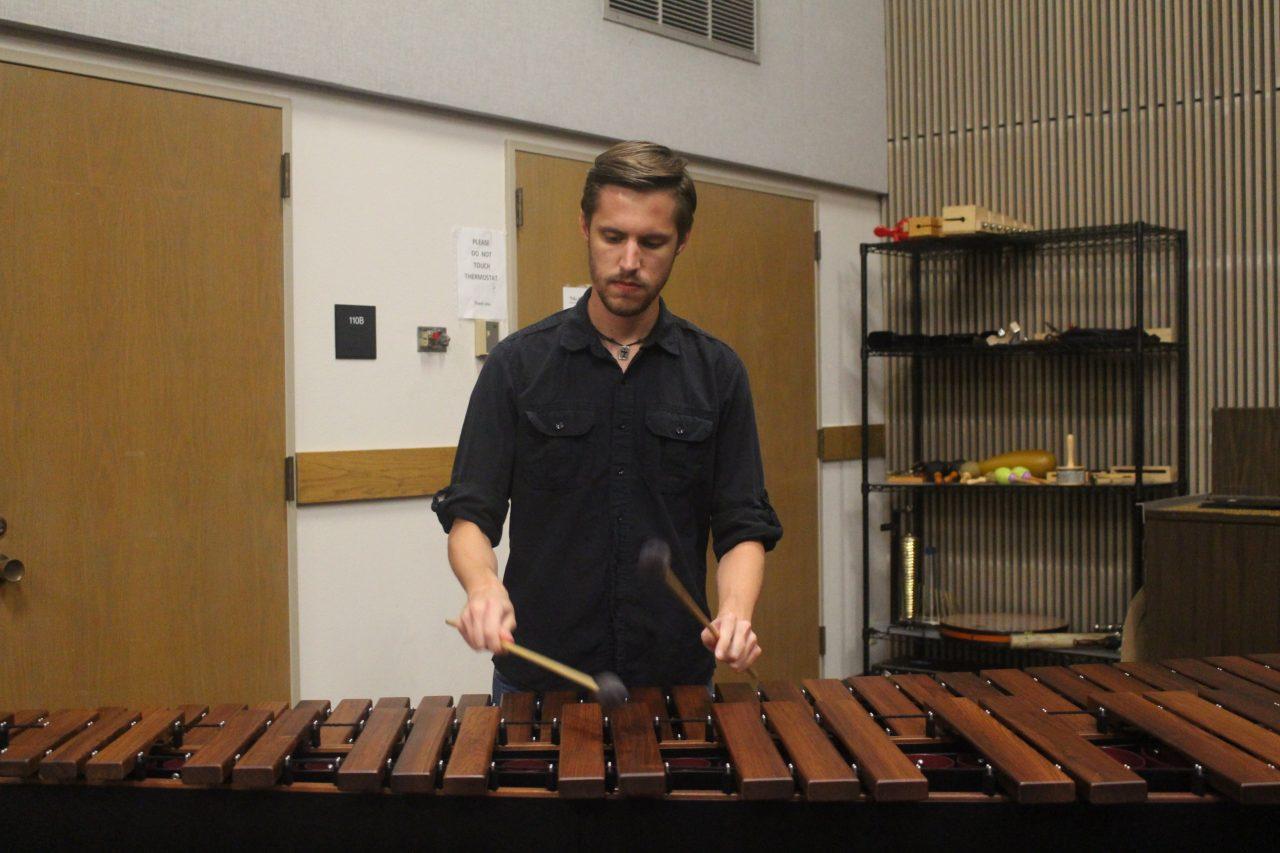Over the summer, Trinity’s music department hired a new adjunct percussion instructor, Bryce Turner, to replace the previous instructor. Turner is fresh out of graduate school at the University of Baylor and after completing his masters there, the job at Trinity seemed the ideal landing spot.
“[The job] was exactly what I was looking for. I was straight out of grad school and I was hoping to find an adjunct position somewhere and this seemed like the perfect opportunity.”
Turner has had a passion for teaching, knowing he wanted to do it right out of grad school.
“I definitely wanted to teach. It should be something I should always do. I also have a passion for performing as well. After getting my masters, I knew I wanted to teach at the college level and to make a living off of it and to see where it took me,” Turner said.
When not here on campus, Turner is also teaching in the New Braunfels area, working in the high school and middle school while teaching private lessons. This practice of having another job in addition to an adjunct position is common among part-time instructors like Turner and a reality that was elaborated on by two of the men who hired Turner, David Heller and James Worman.
As for why the position needed to be filled, it had to do with the previous instructor, Sarah Gartin, being offered an orchestral position in New York City.
“We were very happy with her,” Heller said. “She got a job out east. So we did a search and we identified four candidates that we interviewed for the job. I interviewed them briefly, Worman interviewed them. We looked at the supplemental materials and looked over their resumes. Bryce came to the top of the heap pretty quickly.”
“After the last instructor left, due to wanting to spend more time with family, he gave us a few recommendations as to who to hire for the job,” Worman said. “We hired Sarah Gartney. She settled in well and had a great two semesters here. We were very pleased with how she worked with the studio. Then in the summer, she got an offer to be a full time performer in New York City and so she took the job … To sum up the transition of having three instructors in three years, our previous two were wonderful instructors who had opportunities and commitments that were of great importance and so that created the reality of having to hire new instructors. There are no nefarious undercurrents as to why we have hired three instructors in three years.
As to what they were looking for when filling the position, Heller and Worman were looking for someone who wanted to teach and excelled in their field.
“Not all professional musicians want to come and teach in a liberal arts school. So its finding the right mix of someone who is really fine at what they do and they are able to teach in this context, because we aren’t conservatory. Meaning, our students are doing a lot of other things, not just playing their instruments,” Heller said.
As for the position itself and why their has been three percussion instructors in the past three years, Heller explained the reality of being an adjunct.
“These are part time musicians and the people working them are contract musicians who are looking for work wherever they can find it. Their leaving had nothing to do with their quality of work, but if someone gets the opportunity to get a full time job somewhere else, they are going to take it,” Heller said.
As for creating a full time position for a percussion instructor or professor, Heller was quick to explain that reality of funding.
“Do you want to give me an extra five hundred thousands dollars? Departments have x number of lines, full time lines and in order to expand your number of lines, you have to present evidence to academic affairs that you need another line for a certain area and you provide evidence as to why.”
Heller also noted that at smaller liberal art schools, adjunct positions in music departments, specifically percussion instructors, is very common. Full time percussion instructors are more common at larger public schools.
“[Larger public universities] have massive music education funds, so they can afford to have full time percussion positions. We don’t have a large music education program here, so schools like us, St. Mary’s, Incarnate Word, we rely on people who are in the symphony to fill the adjunct and part time positions. So you’ll have someone who is working a symphony while also covering for a music department adjunct position.”
Worman was quick to note a reality that Heller also touched on, a hint of neglect in what is given to the arts at Trinity.
“The arts are woefully neglected here at Trinity and so we have to work really hard to get our information out.”
Turner’s hiring and the nature of his position isn’t uncommon but part of the cycle of a music department who has to be flexible when filling its positions and work hard to maintain a competitive and healthy musical cast. Finding the right people who can balance a passion for teaching and performance is challenging, but Turner fits that bill like a pillow in a drum.







